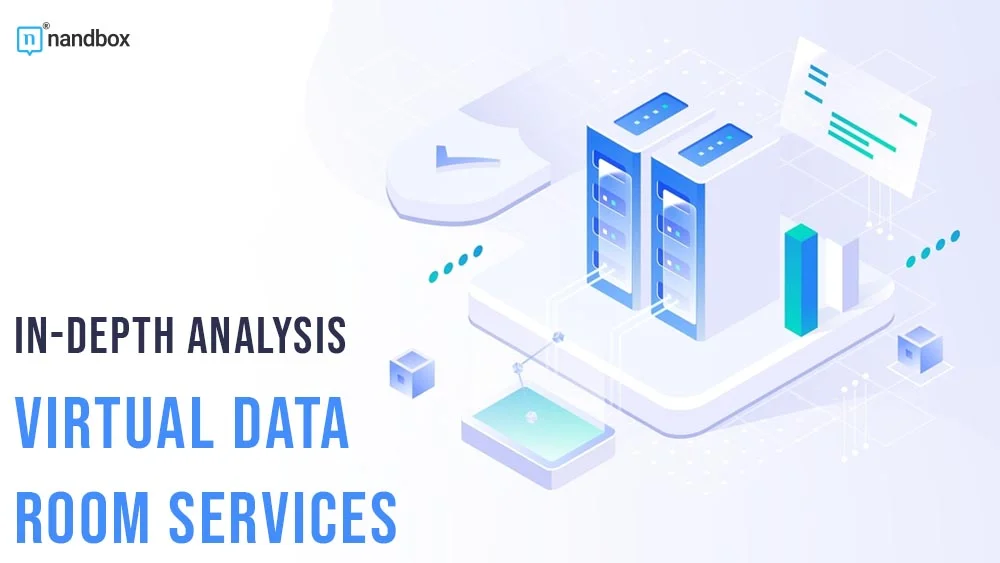Virtual data room software is a contemporary data management solution for modern-day businesses. It is an online document repository and deal management platform globally used for transactions like mergers and acquisitions, fundraising, initial public offerings, asset management, portfolio management, and real estate management.
What makes dataroom software is its effectiveness in every business sector. Be it healthcare, finance, corporate sector, oil and energy, IT, real estate, or banking, Virtual data room software is a premium choice for decision-makers.
Virtual data rooms — a challenging decision
It is safe to say that virtual data rooms are resourceful data management platforms for any business type. However, the selection of the best virtual data room according to your business needs is the challenging part.
There are at least 100 virtual data room providers competing in the international market. The level of security, ease of use, and resourcefulness varies among these vendors. Also, every business or industry has its particular needs, which makes it important to choose a data room with due diligence.
Decision-makers need to compare virtual data rooms on different bases before making a purchase. Here is a comprehensive guide on choosing the right data room vendor.
Virtual data room selection process
Following are some key considerations in the VDR selection process.
Virtual data room pricing
Virtual data room pricing is a tricky segment in the selection process. Data room vendors operate in different ways, and thus their pricing methods also vary. Pricing education is important for decision-makers. There are four commonly used virtual data room pricing models, and here is what you should know about them.
- Per-user: It charges for every user license. Some vendors offer a specified number of licenses at a given rate and charge extra for additional users.
- Per-page: Vendors also charge for every page uploaded in the VDR.
- Storage size: In this method, the service provider charges an amount for the number of GBs of data you store in the VDR.
- Flat monthly fee: Probably the most common nowadays, the flat monthly fee model requires you to pay a fixed monthly fee for a defined package. The payment can be made monthly, quarterly, semi-annually, and yearly.
Data room security
It is the most important factor in the data room selection process. As virtual data rooms are primarily employed for dealmaking, fundraising, or even board communication, cybersecurity must be impeccable.
A virtual data room must be able to protect your confidential information in every possible manner. Here are some mandatory security features for any VDR:
- Two-step verification.
- 256-bit SSL data encryption.
- Document access control.
- User access control.
- View-only document mode.
- Fence-view mode (if you intend to use the VDR for external data sharing).
- Audit logs.
- Digital watermarks.
You can find these tools in premium data room services like iDeals, Merrill, etc.
Benefits of Using Virtual Data Rooms
Virtual data rooms offer numerous benefits across various business activities, enhancing efficiency, security, and collaboration. For mergers and acquisitions, VDRs streamline the due diligence process by allowing secure, organized access to confidential documents. This facilitates smoother transactions, reducing the risk of data breaches and ensuring compliance with regulatory standards.
In fundraising and investor communications, VDRs provide a centralized platform for sharing financial statements, business plans, and other critical information with potential investors, enhancing transparency and trust. For legal professionals, dataroom ensures that sensitive documents are stored and shared securely, minimizing the risk of unauthorized access and maintaining client confidentiality.
VDRs are also invaluable in IPO preparation, where they assist in organizing vast amounts of data, ensuring that all necessary documentation is accessible to underwriters, auditors, and legal teams.
Furthermore, VDRs provide significant advantages for corporate governance by enabling secure document sharing and collaboration among board members and executives. According to Ronald Hernandez, founder of dataroom-providers.org “Virtual Data Rooms are revolutionizing the way companies manage their sensitive information, especially in high-stakes environments like board meetings and strategic decision-making. To enhance this functionality, integrating board meeting agenda software within a VDR environment can further optimize the preparation and execution of board meetings, ensuring that agendas are clear, actionable, and accessible to all board members beforehand. This makes VDRs an ideal solution for enhancing meeting management and streamlining decision-making processes.
Regulatory compliance
Different industries in the United States and all over the world are regulated by local, regional, or global bodies. They require concerned business entities to follow certain protocols in different procedures. For example, the healthcare industry in the US must follow data security protocols specified by HIPAA.
When choosing the data room service provider, make sure it complies with your concerned regulatory authority protocols. USA government agencies must use FISMA-certified VDRs, while financial institutions should employ FINRA-certified data rooms.
Other notable certifications include ISO, GDPR, SOC, etc.
Operating system compatibility
Another key factor is whether a specific virtual data room supports your operating system. Many data room vendors like DealRoom provide limited deployment options, such as web-based deployment.
It is highly recommended to choose a VDR that supports Windows, Linux, Mac, web-based deployment, etc. What’s more, mobile accessibility through dedicated applications is another important factor.
Ease of use
VDR user interface should be clean—even a non-tech savvy person should be able to get used to it after minimum training.
Apart from that, virtual data rooms must have basic data management and communication features. Common examples include:
- Document viewer.
- Drag-and-drop.
- Bulk uploads.
- Document editor.
- In-app messenger.
- Discussion forums.
- Meeting management tools.
- Q&A modules.
Customer support
Lastly, but most importantly, you would love to have sound customer support service. Customer support service plays a huge role even after you purchase the data room subscription. At the start, the customer service must be able to provide basic training material and assist in the data room setup process.
Afterwards, customer support helps in troubleshooting. Therefore, only a knowledgeable customer care unit can assist you in tackling such issues. 24/7, multilingual customer support is even better.
Summing it up
It is important to analyze different virtual data rooms before choosing one for your business. A general virtual data room review includes but is not limited to the analysis of the following elements:
- Security check.
- Ease of use.
- Regulatory compliance.
- Operating system compatibility.
- Online customer reviews.
- Customer support service assessment.
- Virtual data room pricing.





